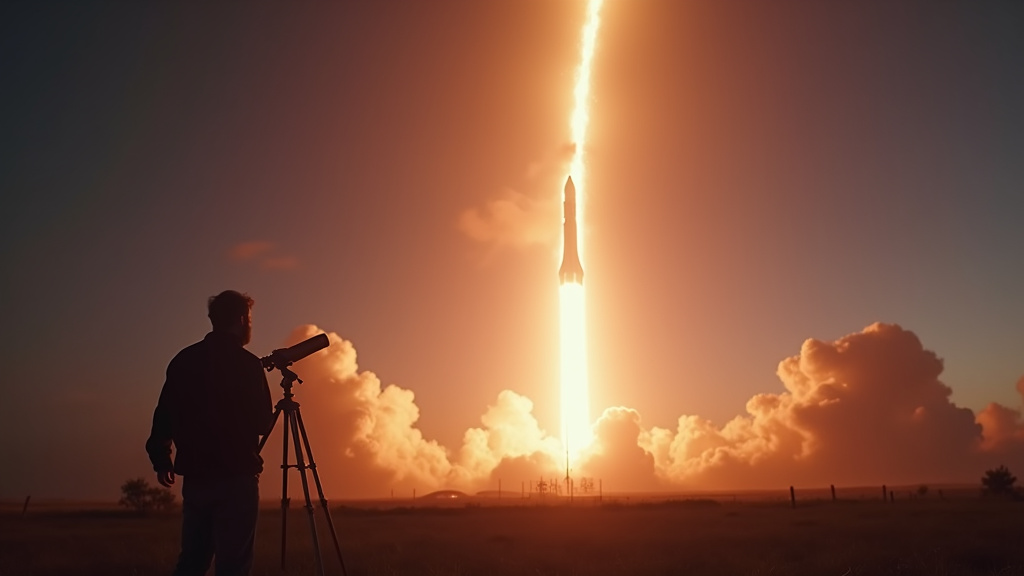Space exploration has entered a new era marked by technological advancements, commercial partnerships, and ambitious missions that extend humanity’s reach beyond Earth’s orbit. Driven by a combination of government space agencies and private companies, recent developments in space exploration are expanding our understanding of the universe and paving the way for future human settlements on the Moon, Mars, and beyond. These advancements are not only expanding scientific knowledge but are also transforming industries and shaping humanity’s long-term goals in space.
In this article, we’ll explore some of the most exciting advancements in space exploration, from lunar missions and Mars rovers to commercial spaceflight and cutting-edge technologies.
1. Lunar Exploration: A Return to the Moon
Artemis Program and Lunar Bases
NASA’s Artemis Program marks the return of humans to the Moon, with a goal to establish a sustainable human presence on the lunar surface. Artemis aims to land “the first woman and the next man” on the Moon and lay the groundwork for a permanent lunar base by the 2030s. The program’s success could provide critical insights into living and working in space, offering an ideal testing ground for future Mars missions.
Alongside NASA, space agencies from Europe, Canada, and Japan are contributing to Artemis, as well as commercial partners like SpaceX, which has been chosen to develop the lunar lander. By establishing lunar bases, researchers hope to use the Moon’s resources, such as water ice, for fuel and life support, ultimately advancing self-sustainability in space.
China and Russia’s Lunar Ambitions
China and Russia have also announced plans for a joint lunar research station. China’s successful Chang’e missions have already placed robotic explorers on the Moon, and the country has plans for more complex lunar missions in the coming decade. The establishment of multiple lunar bases could lead to international collaboration—or competition—in exploring and utilizing the Moon’s resources.
2. Mars Exploration: Paving the Way for Human Presence on the Red Planet
NASA’s Perseverance Rover and Mars Sample Return Mission
NASA’s Perseverance rover, which landed on Mars in 2021, has been instrumental in exploring the planet’s surface and collecting soil samples. Perseverance is equipped with advanced tools to search for signs of ancient microbial life and has also conducted the first successful oxygen production experiment on Mars using the MOXIE (Mars Oxygen In-Situ Resource Utilization Experiment) technology.
The Mars Sample Return Mission, a collaboration between NASA and the European Space Agency (ESA), aims to bring these samples back to Earth for detailed analysis. This mission could answer fundamental questions about Mars’ habitability and lay the groundwork for future human missions by testing technologies that convert Mars’ resources into oxygen and fuel.
SpaceX’s Mars Colonization Plans
SpaceX, founded by Elon Musk, has ambitious plans to send humans to Mars with its Starship rocket, which is designed to transport both cargo and crew for interplanetary missions. Starship is being developed to carry large payloads, making it suitable for building infrastructure on Mars. Musk’s long-term vision of creating a self-sustaining human colony on Mars represents a bold approach to space exploration, aiming to make humanity a multi-planetary species.
If successful, SpaceX’s efforts could reduce the cost of interplanetary travel and make Mars exploration and settlement more accessible, inspiring other commercial ventures and scientific missions to follow suit.
3. Commercial Spaceflight: Opening Space to the Public
Space Tourism and Commercial Flights
Commercial spaceflight is rapidly expanding, with companies like SpaceX, Blue Origin, and Virgin Galactic making it possible for private citizens to experience space travel. Space tourism, once a distant dream, is now a reality, allowing civilians to take suborbital or orbital flights, albeit at a high cost. Blue Origin’s New Shepard rocket and Virgin Galactic’s VSS Unity have completed several successful missions, bringing paying customers to the edge of space.
SpaceX has taken a step further with the Inspiration4 mission, the first all-civilian crewed mission to orbit, which demonstrated the feasibility of longer, crewed missions for commercial purposes. The growth of space tourism not only broadens access to space but also funds technological development, supporting more ambitious projects like lunar and Mars missions.
Partnerships Between Governments and Private Companies
The success of commercial space companies has led to increased collaboration with government space agencies. NASA, for example, relies on SpaceX and Boeing to transport astronauts and cargo to the International Space Station (ISS) through the Commercial Crew Program. These partnerships reduce costs, expand capabilities, and allow government agencies to focus on deep space exploration by outsourcing low-Earth orbit operations to private companies.
4. Emerging Technologies Shaping the Future of Space Exploration
Reusable Rockets
The development of reusable rockets by companies like SpaceX and Blue Origin has been a game-changer for the space industry. By reusing rockets, these companies reduce the cost of launching payloads into space, making space travel more sustainable and economically viable. SpaceX’s Falcon 9 and Starship rockets, which can be reused multiple times, have already saved billions in launch costs, making large-scale missions more feasible.
Nuclear-Powered Propulsion
NASA and private companies are exploring nuclear propulsion as a means to reach Mars and other distant destinations faster. Nuclear-powered engines could reduce the travel time to Mars from around nine months to just a few months, minimizing the health risks for astronauts from prolonged space travel. This advancement could make long-duration space exploration safer and more efficient, opening possibilities for deeper space missions.
Artificial Intelligence and Robotics
AI and robotics are integral to space exploration, particularly for missions where human presence is not feasible. Robotic explorers like Perseverance and the Curiosity rover rely on AI for navigation and data collection, while robotic arms on the ISS assist astronauts with maintenance and experiments. The development of more advanced AI could improve the autonomy of future missions, enabling robots to adapt to unforeseen challenges on planets like Mars or on asteroids.
AI and robotics are also being used to monitor spacecraft systems, manage onboard resources, and perform tasks that would be difficult or dangerous for humans. These capabilities enhance mission safety and allow researchers to gather valuable data from hard-to-reach locations in the solar system.
In-Situ Resource Utilization (ISRU)
ISRU technology allows explorers to utilize resources found on other celestial bodies, such as the Moon or Mars, to produce essential supplies like water, oxygen, and fuel. NASA’s MOXIE experiment on Mars is a successful demonstration of ISRU, showing that oxygen can be extracted from the Martian atmosphere. As ISRU technology advances, it could enable sustainable human presence on the Moon and Mars by reducing dependence on supplies from Earth.
5. International Collaboration and Space Governance
The Artemis Accords and Global Cooperation
International cooperation is crucial for advancing space exploration. Initiatives like the Artemis Accords, an international agreement led by NASA, aim to promote peaceful collaboration on space exploration and establish norms for future lunar activities. Over 20 countries have signed the accords, which encourage transparency, resource sharing, and responsible behavior on the Moon and beyond.
Such agreements are essential for setting standards in space governance, especially as countries and private companies expand their presence in space. By working together, nations can pool resources, reduce costs, and avoid conflicts over territorial claims and resource use.
The Future of the International Space Station and Beyond
The International Space Station (ISS) has been a cornerstone of international collaboration in space, bringing together countries like the U.S., Russia, Japan, and European nations for over two decades. As the ISS approaches the end of its lifespan, discussions about the future of space habitats are underway. Private companies are already developing concepts for commercial space stations that could continue scientific research, tourism, and commercial activities in low Earth orbit.
As the ISS era winds down, partnerships for new space stations—possibly in lunar orbit or beyond—will shape the next chapter of international cooperation in space.
6. Looking Toward the Future: Space Exploration Goals for Humanity
Mars Colonization and Beyond
The long-term goal of space exploration is to establish human settlements on other planets, with Mars as the primary target. The success of lunar missions under Artemis, alongside technological advancements by private companies like SpaceX, will play a critical role in preparing for Mars colonization. Establishing a self-sustaining presence on Mars would require infrastructure, energy production, agriculture, and advanced habitats that can withstand the harsh Martian environment.
Asteroid Mining and Space Economy
Asteroid mining could become a viable industry in the future, providing access to rare metals and resources needed for high-tech industries on Earth. Companies are developing technologies to explore and potentially mine asteroids, which could fuel the space economy and make space missions more self-sustaining.
A thriving space economy, from asteroid mining to space tourism, will create new industries, jobs, and opportunities for innovation, transforming space exploration into a major component of the global economy.
Conclusion
Advancements in space exploration are opening a new frontier for humanity, with each breakthrough bringing us closer to a future where space travel is routine and human presence extends beyond Earth. From lunar bases and Mars missions to reusable rockets and AI-driven space exploration, these developments are reshaping our understanding of what is possible. The increasing role of commercial companies, coupled with international partnerships, is accelerating progress and creating exciting possibilities for the next generation of explorers.
As we look toward the stars, space exploration is no longer just about discovery but about ensuring humanity’s future. The pursuit of knowledge, technological innovation, and a sustainable presence in space will continue to drive us forward, pushing the boundaries of exploration and redefining our place in the universe.
FAQs
1. What are the main goals of the Artemis Program?
The Artemis Program aims to return humans to the Moon, establish a sustainable presence, and use lunar exploration to prepare for Mars missions.
2. How is SpaceX contributing to space exploration?
SpaceX is pioneering reusable rocket technology, supporting NASA’s Artemis Program, and developing Starship for Mars colonization and interplanetary travel.
3. What is In-Situ Resource Utilization (ISRU), and why is it important?
ISRU involves using local resources (like Mars’ atmosphere) to produce essential supplies, reducing dependency on Earth and supporting sustainable human presence in space.
4. How does international cooperation impact space exploration?
International collaboration, as seen in the Artemis Accords and ISS, allows countries to share resources, reduce costs, and establish guidelines for peaceful space exploration.
5. What are the prospects for space tourism?
Space tourism is growing, with companies like SpaceX, Blue Origin, and Virgin Galactic offering civilian flights, opening space to the public and funding future missions.














